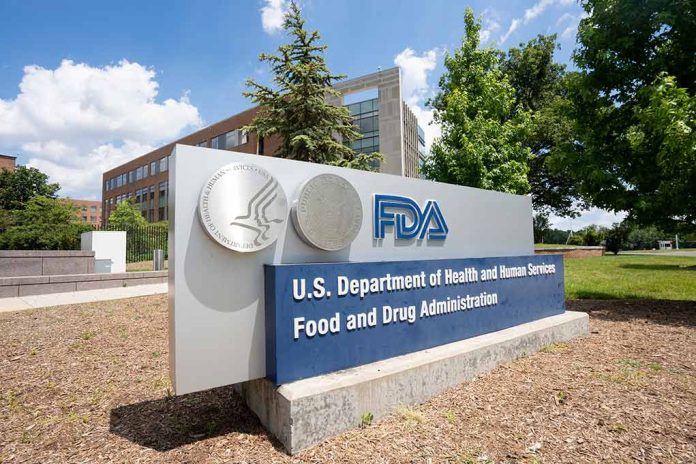
The FDA’s crackdown on unauthorized diabetes and obesity drugs highlights critical patient safety issues as they aim to remove less pricey alternatives from the market.
At a Glance
- FDA demands removal of unauthorized versions of popular drugs like Ozempic and Wegovy.
- Novo Nordisk and Eli Lilly argue that compounding is no longer needed due to resolved shortages.
- Legal complexities arise for compounding pharmacies as shortages are declared over.
- Concerns linger about safety, possible black market sourcing, and patient access to medication.
Pharmaceutical Companies and FDA’s Stance
The FDA’s recent order targets unauthorized versions of critical obesity and diabetes drugs, focusing on semaglutide and tirzepatide. Pharmaceutical giants like Novo Nordisk and Eli Lilly support the FDA’s decision, arguing that the shortage of these medications has ended, thus eliminating the need for compounded versions. The removal stems from high demand and shortages that once allowed compounding under legal frameworks.
Now, these shortages are no longer an issue, making the legal production of these compounded drugs precarious. For instance, Eli Lilly’s Zepbound and Mounjaro, which contain tirzepatide, have finally met the market’s needs after years of scarcity.
FDA and Safety Concerns
Reports to the FDA reveal adverse reactions linked to the use of unauthorized compounded forms of semaglutide and tirzepatide, often resulting from dosing errors. Such findings have prompted the FDA to act decisively to safeguard patients from potential harm. Safety reviews and quality checks were skipped in creating these compounded versions, which further concern health officials about their efficacy.
Compounding pharmacies are challenged by the FDA’s decision, with some receiving cease and desist orders and struggling to obtain necessary brand-name drugs. The risk of a black market emergence looms large as patients might seek alternatives when faced with reduced access to either branded or compounded options.
Legal Battles and Patient Impact
Compounding pharmacies have initiated lawsuits arguing that the FDA’s declaration ending the shortage was premature. Such legal disputes add complexity and uncertainty, affecting patients who have already invested in these alternatives. Moreover, the FDA is working to classify these drugs as too challenging for safe compounding, pending finalization of regulatory rules.
“The inordinate amount of money that is changing hands for the new weight-loss drugs, their incredible efficacy, the runaway demand. It’s all about the dollars,” said Robin Feldman, law professor at the University of California.
These ongoing debates have left patients anxious about their continued access to vital medications. The fear is that restricted access could lead consumers to dangerous counterfeit or online sources, undermining the FDA’s primary goal of ensuring patient safety.
Sources:
- https://www.npr.org/sections/shots-health-news/2024/11/20/nx-s1-5178102/ozempic-semaglutide-tirzepatide-compounding-pharmacies
- https://apnews.com/article/obesity-drugs-zepbound-shortage-fda-13d18b0e3e74a7f7355521bf8e38cb5b
- https://www.fda.gov/drugs/postmarket-drug-safety-information-patients-and-providers/fdas-concerns-unapproved-glp-1-drugs-used-weight-loss
- https://www.washingtontimes.com/news/2024/dec/19/fda-says-offbrand-versions-zepbound-mounjaro-must-/?utm_source=RSS_Feed&utm_medium=RSS










